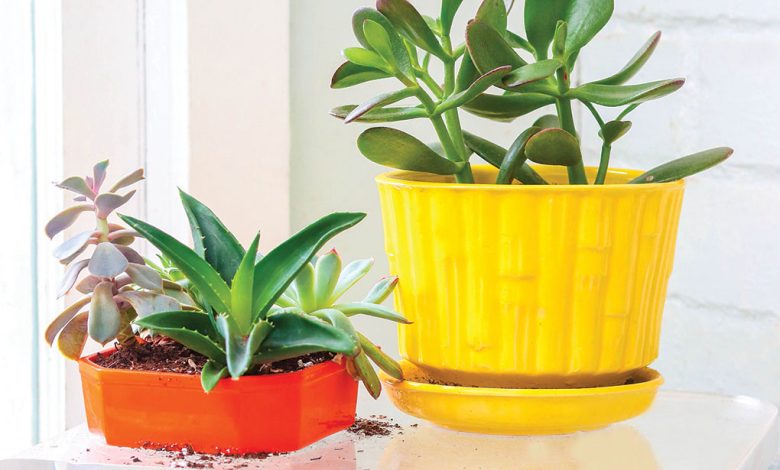Winter Houseplants
Tips to help houseplants thrive over the winter

Winter can be harsh. Frigid temperatures and fewer hours of daylight can take a toll, and many people prefer to stay warm inside as much as possible during the winter months. Indoor air also can take a toll, leading to dry skin and increasing individuals’ exposure to viruses. Warm and dry indoor air also can affect houseplants, which underscores how important it is to change your indoor plant care routine in winter.
Outdoor plants might not bloom or thrive once winter arrives, but houseplants can make it through the season with a few simple strategies.
- Cut back on watering, if necessary. The relationship between sunlight and water in regard to houseplants is simple: the more light plants get, the more water they need. Because there’s less daylight in winter, houseplants may not need to be watered as frequently as they will during other times of year. But that could depend on where the plant is located in the house. If it’s near a window with substantial sunlight exposure, then it might need as much water as it requires during other times of year. Soil conditions may provide clues as to how frequently houseplants need to be watered in winter. Touch the soil before watering. If it’s wet or feels damp, the plant does not require watering.
- Mobilize your houseplants. Some houseplants may be too large and heavy to move. However, smaller plants may benefit from being more mobile. When moving houseplants, move them to a spot where they can get ample sunlight during the day, especially if they’re typically located in areas of your home that do not get much exposure to sunlight in the winter.
- Keep plants away from vents. Anyone who lives in a region where winter temperatures get very cold knows that conditions sometimes require bumping up the temperature on the thermostat. That can make a home more comfortable for humans but less comfortable for houseplants. It’s always best to keep houseplants away from heating vents so they won’t dry out and potentially die.
- Check for uninvited guests. Summer might be the season most synonymous with pests, but houseplants are not invulnerable to uninvited pest guests in winter. Spiders flock to home interiors in fall to avoid the coming winter cold. However, the experts at Better Homes & Gardens note that spider mites are common winter pests because they like warm and dry conditions. BHG urges individuals to inspect the tops and undersides of houseplant leaves and stems for signs of pest infestation. Treat small infestations with an alcohol-soaked cotton ball, which can be used to wipe pests off the plants. Large infestations may require the use of insecticidal soap.
Winter is harsh on humans and can be hard on houseplants as well. Some simple strategies can help houseplants get through the season unscathed.

